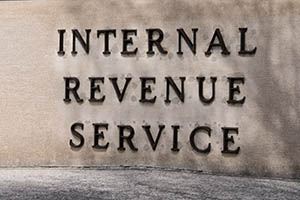Budget cuts and a significant drop in Special Agents that investigate criminal tax crimes has led the IRS to use Artificial Intelligence (AI) to uncover criminal tax activities. In a recent webcast hosted by the American Bar Association, the IRS revealed that research and investigative techniques that used to take weeks or months may now be accomplished in minutes with technology the IRS is rolling out to detect taxpayer noncompliance.
These computer tools are able to detect fraud, identity theft, money laundering and hidden assets that Revenue Agents and Special Agents typically look for manually. The speed and sophistication of these computer data mining programs has greatly increased the IRS’ efficiency.
The program started with the signing of a seven-year, $99 million deal with Palantir Technologies this past September. The project uses machine learning algorithms and artificial intelligence to examine and analyze filed tax returns, bank reports, property records and social media posts. It analyzes various patterns of conduct and activities that might indicate noncompliance.
Since 2010, the IRS has suffered budget cuts totaling $1 billion and loses about 150 agents every year to attrition. That leaves around 2,100 Special Agents working on a population of 250 million taxpayers.
On the administrative/civil enforcement side, the IRS is also beginning to use AI to detect noncompliance. In-house development of these techniques is supported by a Compliance Data Warehouse. CDW was built in the 1990s to collect data from several databases and using forward-looking data analysis to uncover or prevent fraud. CDW has approximately 40 data sets on taxpayers going back more than 30 years. Using algorithms, like those used by online retailers, the IRS can use predictive software to examine gaps in data or tax returns that may reveal noncompliance. That translates to an enormous amount of data collected on taxpayers for decades.
As technology continues to advance, computer driven analysis will lead to increased discovery of potential fraud and noncompliance. Revenue and Special agents will still be needed to complete the investigations, but the IRS’ limited manpower will become significantly more efficient. Of course, with the advance of technology to analyze disparate data points, the margin for error and false conclusions can increase as well leading to enhanced scrutiny of potentially innocent taxpayers.
Robert Stahl, and his firm, Stahl Gasiorowski Criminal Defense Lawyers aggressively defend individuals charged with complex federal and state crimes. Founder Robert G. Stahl is recognized as one of the top criminal defense attorneys in the NY/NJ area for his skills, knowledge and success. To contact the firm, call 908.301.9001 for the NJ office and 212.755.3300 for the NYC office, or email Mr. Stahl at rgs@sgdefenselaw.com.


Leave A Comment